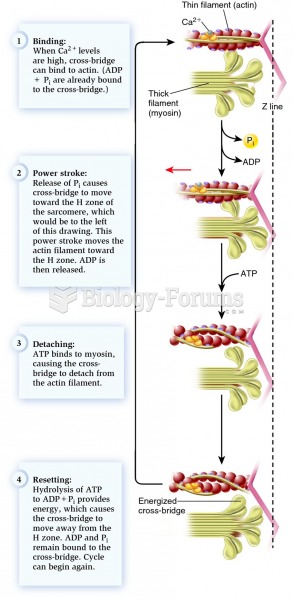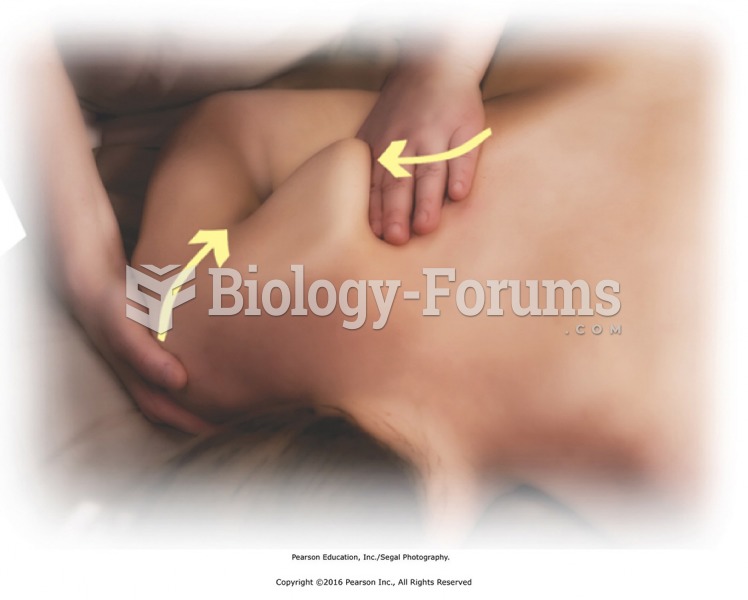This topic contains a solution. Click here to go to the answer
|
|
|
Did you know?
Only 12 hours after an egg cell is fertilized by a sperm cell, the egg cell starts to divide. As it continues to divide, it moves along the fallopian tube toward the uterus at about 1 inch per day.
Did you know?
In most climates, 8 to 10 glasses of water per day is recommended for adults. The best indicator for adequate fluid intake is frequent, clear urination.
Did you know?
More than 20 million Americans cite use of marijuana within the past 30 days, according to the National Survey on Drug Use and Health (NSDUH). More than 8 million admit to using it almost every day.
Did you know?
Most women experience menopause in their 50s. However, in 1994, an Italian woman gave birth to a baby boy when she was 61 years old.
Did you know?
The ratio of hydrogen atoms to oxygen in water (H2O) is 2:1.
 Common locations of venous thrombosis. (A) The most common sites of deep vein thrombosis. (B) DVT ex
Common locations of venous thrombosis. (A) The most common sites of deep vein thrombosis. (B) DVT ex
 Dopamine cannot cross the blood–brain barrier. Levodopa, its precursor, can. Once levodopa crosses ...
Dopamine cannot cross the blood–brain barrier. Levodopa, its precursor, can. Once levodopa crosses ...





